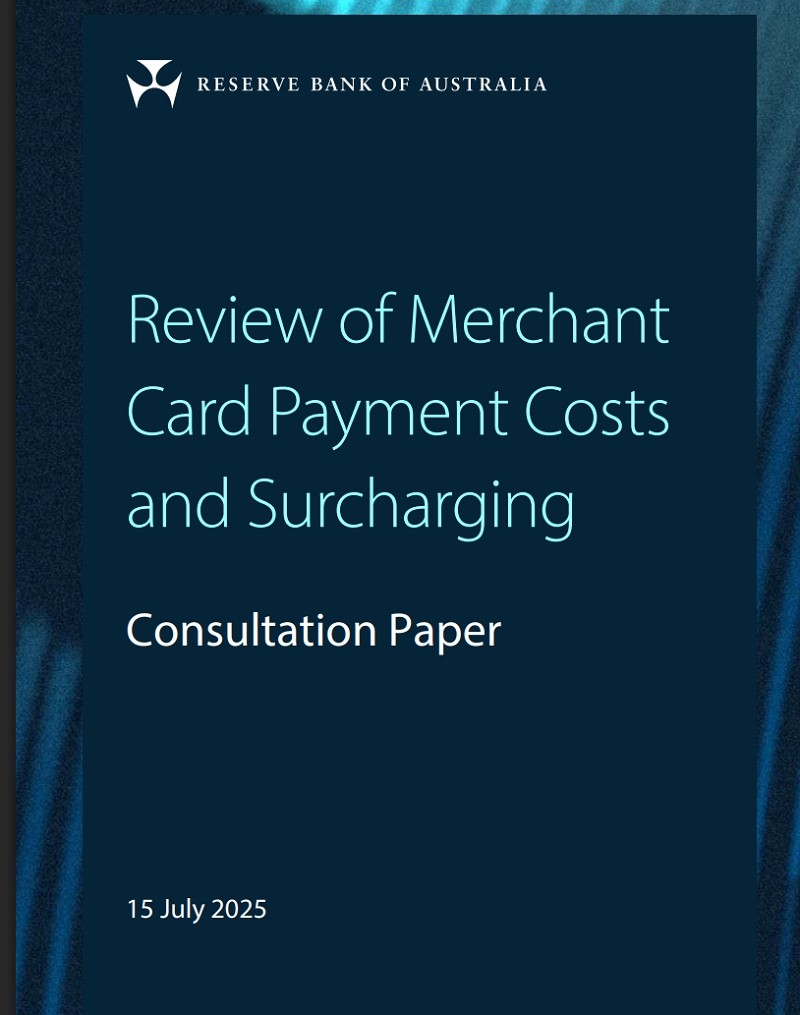
If you own or manage a retail business in Australia, it's time to consider the Reserve Bank of Australia's (RBA) proposed changes to card payments, which aim to eliminate surcharges on debit and credit cards. While the RBA surcharge ban offers some benefits, it also brings challenges for SMB retailers.
The Labor Party entered the last election committed to eliminating debit card surcharges, which were part of their election promises. Now the RBA has expanded this significantly, proposing a broader ban that includes both debit and credit cards. If it goes through, it will directly impact many SMB retailers as it means you will no longer be able to impose a surcharge to offset the costs of accepting credit, debit, or prepaid cards from major networks such as Mastercard, Visa, or EFTPOS. This forces you to absorb these expenses.
After yesterday's consultation, although we were hoping for something better, we concluded that it's not all negative, as the RBA is also requesting that interchange fees be lowered. For instance, debit card interchange fees are to be decreased from 10 cents to 6 cents per transaction, while credit card fees go to 0.3%. The plan also caps fees for foreign cards, but it's unclear how this works. For example, if a French bank charges 50 cents, what does the RBA propose? Reading the document, it's unclear how these lower fees are to be passed on to the SMB retailer. My immediate concern is whether the banks will be able to charge additional or higher administration fees to offset these reductions.
The RBA plan will require payment processors to disclose their fees in a clear and comparable manner, segmented by merchant size and card type. Although some saw this as a positive, I view it as insignificant, as reputable payment processors have been doing this for some time.
These changes are scheduled to commence on 1 July 2026. At least this gives us all a reasonable timeframe for adaptation.
Before I review some of the positives and negatives, let me note that today, the debit card is the dominant form of payment in retail, and it should, as such, be the default payment method for pricing.
Positives for SMB Businesses
The reforms could reduce card acceptance costs through new, lower caps on interchange fees. Since most SMBs already absorb these costs into pricing, they stand to save money. The RBA estimates that 90% of businesses that do not surcharge will benefit (our data shows 70% do not surcharge), meaning the majority could still gain.
Eliminating the surcharge will prevent many customer disputes, complaints, and confusion, and reduce friction with customers.
The push for greater fee transparency is another benefit, as it eliminates the need for you to request it directly. Potentially leading to cost savings.
It does not stop you from offering discounts for cash transactions. This approach rewards customers who opt for the lower-cost option of cash without violating the new surcharge ban.
Implementation costs, while present, are relatively modest. In our POS System and most others, it's just a minor change to the settings. The price of many goods in the shop will need to be changed to include the costs of the surcharges.
Challenges and Considerations, the negatives.
While the reforms offer substantial upsides, they also present problems for SMB businesses operating today with tight margins. Payment providers will still be charging fees, which SMBs must now absorb. For retailers in low-margin sectors, such as those with regulated or capped prices, like Lotto, I doubt they will see an increase in merchant margins to compensate for the loss of the surcharge. Lotto has made it quite clear that they do not like these surcharges.
Unfortunately, the plan favours larger retailers, who now have better rates, over smaller ones, and the RBA seems unconcerned with that.
The ban on surcharges encourages customers to use higher-cost cards. Many will switch from debit to credit cards. What happens if an American Express card is used?
Reliance on payment providers to pass through savings from lower interchange fees introduces uncertainty. I have spoken to them several times about this issue, and they claim that they are making little of it. If so, where do they make up the difference? Therefore, although the RBA anticipates that these reductions will benefit merchants, there is no guarantee that they will occur. Will there be higher administrative charges?
Additionally, merchants will lose some negotiating leverage with banks, as the current surcharges have been a concern for the banks.
The Outlook for SMB Retailers
With the current strong political backing, the RBA's plan is likely to proceed as outlined in their July 2025 consultation paper. SMB retailers should prepare now for the July 1, 2026, rollout.
So get ready to adapt? Once we are aware of the exact changes, we will provide a free guide to our users to help them make the necessary adjustments.
This information is based on the RBA's consultation papers from July 2025, which can be found here.
Written by:

Bernard Zimmermann is the founding director of POS Solutions, a leading point-of-sale system company with 45 years of industry experience, now retired and seeking new opportunities. He consults with various organisations, from small businesses to large retailers and government institutions. Bernard is passionate about helping companies optimise their operations through innovative POS technology and enabling seamless customer experiences through effective software solutions.


